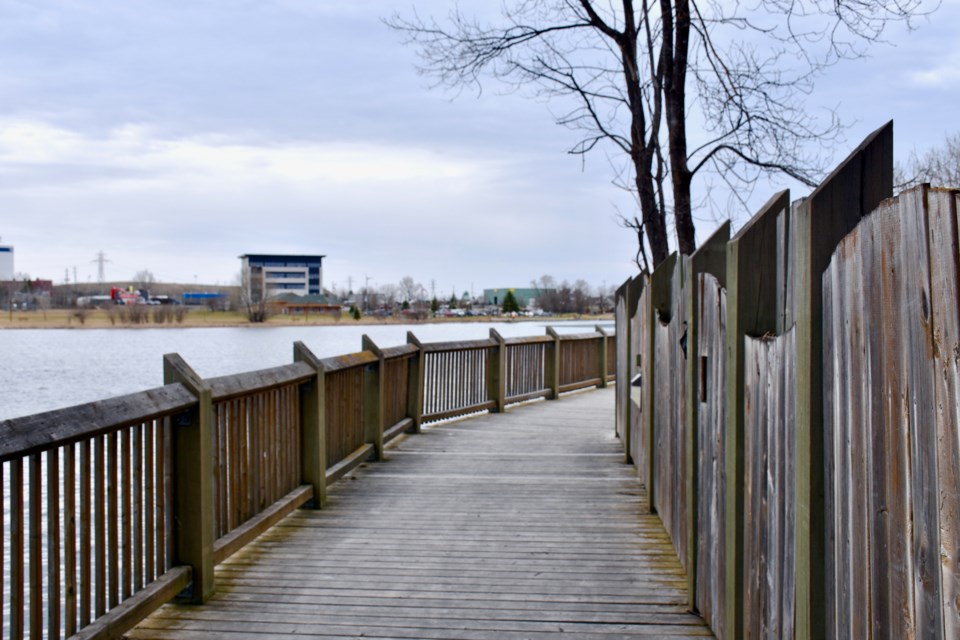With the ice going out on local lakes, dead fish have been appearing on some Timmins-area shorelines.
While it may seem alarming, Ministry of Natural Resources and Forestry fisheries biologist Larry Ferguson says winterkill is common.
“It’s pretty common, especially in these small water bodies and especially in the north where you’ve got small water bodies with vegetation and long periods of ice, and this year, of course, was one of those years where we had a late thaw,” he said.
With a particularly long winter this year, he said there was really thick late ice in the last part of it. Combined with the snow cover on top, it would have impacted the amount of light getting through.
“If you’ve got a lake like Gillies Lake or a lake that is a small pond or a lake that has a lot of vegetation in it, those plants usually produce oxygen for the fish and for the other creatures that are in the water body to breathe. But what happens if the light is blocked, then they can’t produce that as much so what happens then is the plants start to die, decompose and it uses up the oxygen in the water body so there’s less oxygen in the water, but also things produced like carbon dioxide that are harmful to fish as they’re trying to breathe through the last part of the winter,” he explained.
Certain fish are more susceptible to low oxygen levels in the water.
Fish that need well-oxygenated water to survive, such as trout and whitefish, are more susceptible to winterkill. Walleye, pike and bass are moderately tolerant, while the most tolerant to low oxygenated water are suckers and bullheads.
One of the areas that people have noticed the dead fish is at Gillies Lake.
In a Facebook post, the Mattagami Region Conservation Authority said testing is taking place to confirm that winterkill is the cause. The organization will also clean up the fish found at that lake.
“Within the municipality, you are encouraged to contact the City of Timmins before removing large amounts of dead fish to discuss disposal arrangements,” reads the post.
The thinning out of the fish population has its benefits.
“It usually doesn’t affect all the fish in the lake, it’s only a small proportion of them so the fish that are left usually do quite a bit better for the rest of the year and the coming few years because there’s less competition for them, they can grow faster, have less competition for resources,” Ferguson said.
If you have questions or concerns about fish die off in the Timmins area, call the district office at 705-235-1300.
If you suspect the fish died from a spill, Ministry of Environment and Climate Change hotline is 1-866-MOE-TIPS.



